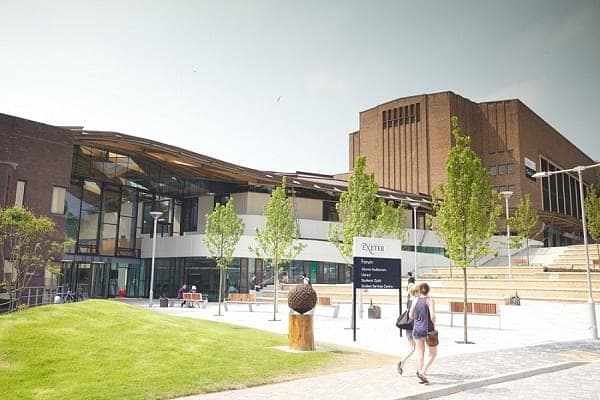Modules:
Year 1:
In year one you will develop your understanding of physics and become familiar with a variety of basic mathematical tools. The concepts and phenomena you will meet are many and varied, but are united by the underlying principles of physics. In a typical week you will spend 15 hours in a formal teaching environment, and be expected to spend a further 20 hours in independent study. You will have four hours of lectures in physics, two in mathematics, one tutorial, six hours in the teaching laboratories and two hours in problem-solving classes.
Compulsory modules
- Introduction to Astrophysics
- IT & Electronics
- Mathematics
- Practical Physics
- Properties of Matter
- Vector Mechanics
- Waves and Optics
Year 2:
Year two provides a firm foundation of physics, and the principles that constitute the framework of the subject. The use of mathematics gives these principles a precise form and provides physicists with the ability to make detailed quantitative predictions. This year focuses on four main cornerstones of physics: condensed matter, quantum mechanics, electromagnetism and thermodynamics. These provide the core of most of physics and of our understanding of the evolution of our universe. The other modules in your second and subsequent years draw in part on your knowledge of this core.
Compulsory modules
- Condensed Matter I
- Electromagnetism I
- Maths with Physical Applications
- Practical Physics II
- Quantum Mechanics I
- Thermal Physics
Final Years
The two final years of this programme allow you to apply the core principles in a broad range of important areas, such as Nuclear and High-Energy Particle Physics and Statistical Physics, plus advanced electromagnetism, quantum physics and condensed matter physics. There are numerous options in theoretical physics for you to choose such as Quantum Many Body Theory, and Relativity and Cosmology. You can also choose to study technologically-important areas such as Quantum Optics and Photonics, and Physical Methods in Biology and Medicine, and active research areas such as Galaxies and High Energy Astrophysics, and Nanostructures and Graphene Science. (Options are dependent on the programme of study).
The final years of the programme also involve substantial project work. As part of the MPhys programme, you will be ‘adopted’ into one of our research groups, working in a small group (typically three or four, but with individual roles), to undertake a project for at least one academic year. You will select your preferred project from a list of short research proposals freshly written by the academics each year. The projects are original and open-ended, i.e., they each focus on a previously unstudied piece of physics. You will meet with your supervisor (a professor or lecturer) once a week to discuss progress and future work. You are also encouraged to attend research seminars from visiting speakers, attend the weekly group meetings, and integrate and socialise with the PhD students and researchers.
Year 3: compulsory modules
- Electromagnetism II
- General Problems
- Nuclear and High Energy Particle Physics
- Quantum Mechanics II
- Practical Physics II
- Quantum Mechanics I
- Thermal Physics
Year 4: compulsory modules
- Condensed Matter II
- Project
- Statistical Physics
